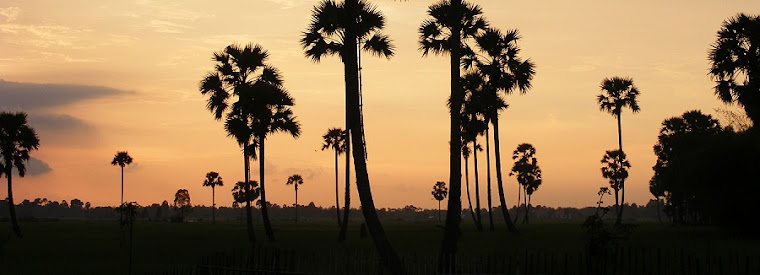How many times have I been asked the question, “ What is
your favourite thing about your work overseas?” And how many times have I given
the same predictable, unrevealing answers, “Oh, I like working with the
communities, the way I’m always learning and growing, getting to use my
interests in science in a way that really helps people.”
To get good answers, you have to ask good questions. When a
child is in school, it is common to ask them, “What is your favourite subject?”
Sure, if you don’t know them at all, this is a great place to start, and will
give you an idea of their general interests. “I like science.” My father used
to ask me every day after school, “What did you learn today?” This question
demands thought every time and has a different answer every time. It reveals
what really made an impression on me, what was of great interest and
worth remembering, and why it was memorable. “Today we were learning about
thermo dynamics in chemistry class and made ice cream by putting a ziplock bag
of milk in a container of ice and salt. Now I’ll never be able to eat ice cream
without thinking about heat capacity.”
When people ask me what is my favourite thing about my work, I rarely have a chance to tell the stories; the stories
that get to the core of why I love what I do. “What is it about working in with
the communities in Mozambique that you enjoy so much? How has your
understanding of development; community; religion; politics; truth; happiness;
family been shaped by your experiences? What is it about your work that you
look forward to every day? What did you learn today?"
I want to take some time today to share with you some of my
“favourite things”. These things are too small, too seemingly insignificant on
their own to earn a place in a response so broad as “the favourite thing about
my work”. But these are the true, deeply meaningful experiences from my
agriculture work in rural villages that I will carry with me always.
 |
It is my favourite thing when a kid climbs up the closest maçanica tree, shakes the branches, and
I get to join everyone in picking up and eating the fruit.
 |
It is my favourite thing to share an inside joke with my
colleagues.
 |
It is my favourite thing when I get to show people that I’m
actually just a normal person too. Maybe normal is a stretch, but when a group
of people were digging a pit in the river bed to access water for irrigating
their vegetables, I took my turn with the shovel too, to the surprise of many. In the hot of the afternoon
I can fall asleep on the ground under a tree with the best of them. Just because I've not yet mastered the art of carrying water on my head doesn't mean I've never watered a garden before. Eating with
my hands? No electricity? No big deal. Sadly, I somehow don't have many pictures of me being normal, but you'll just have to trust that I right after taking this picture I took the shovel from the guy on the left.
 |
It is my favourite thing just to be with people. Yesterday I was sitting on the ground with a group of women
and picked up the baby of the woman beside me and started playing with him. It
touched my heart when my colleague translated what one woman said; “We can’t
speak Portuguese so it is hard to talk with you, but we can see that this baby
is very comfortable and happy to be with you.”
 |
It is my favourite thing when people teach me things. Last
week, this woman in Matambo was teaching me how to bundle kale using strips of
wet bark.
 |
I don’t want to give the jaded impression that my work is
all “raindrops on roses and whiskers on kittens.” There are times when the dog
bites and the bee stings. These things should not be overlooked nor their
importance undermined. The answer to the question “what did you learn today” is
not always as delicious as ice cream. The roses have thorns and the kitten has
claws. These lessons should be learned and not ignored. But at the end of the
day it does the heart good to dwell on those things that are good; to give
praise for the simple blessings that we experience everyday.
